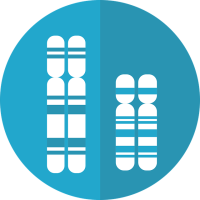We have been studying bladder cancer in a mouse model of the disease and we are seeking to understand the molecular features of the mouse models as they relate to human bladder cancer.

We have been studying bladder cancer in a mouse model of the disease and we are seeking to understand the molecular features of the mouse models as they relate to human bladder cancer.

Big data with temporal dependence brings unique challenges in effective prediction and data analysis. The complex high-dimensional interactions between observations in such data brings unique challenges which standard off-the-shelf machine learning algorithms cannot handle. Even basic tasks of clustering, visualization and identification of recurring patterns are difficult.

The funded study examines policies that regulate the PO supply, including those related to prescription drug monitoring programs, pain management clinic laws, and prescribing limits. In this supplement, we add a set of complementary opioid policies that affect access to treatment for opioid use disorder (e.g., Medicaid coverage of medication for opioid use disorder).

The Quadracci Sustainable Engineering Lab (qSEL) has several research efforts related to the low-carbon energy transition, including pathways to decarbonize building space heating. Recent work has produced large model data sets that have supported recent journal articles. Several maps have been produced using QGIS and data has been made public, but user functionality is limited. While we continue to build on these efforts, we also want to make our results and data available more widely for other researchers and policymakers. The large data sets (10 years of hourly data for more than 72,000 census tracts and six scenarios) and different spatial aggregations (e.g. states and electricity planning/operating regions) present challenges. In this project, the DSI Scholar would first work with qSEL researchers to develop an interactive web interface to display maps of relevant analyses and allow users to produce time series data from the underlying models. Additional research would include further analysis at a regional level – likely New York State – to refine the current model based on additional intraregional and energy source data. The project has the possibility of extending through Summer 2020, subject to fundraising efforts and the success of the Spring 2020 project.

The amount of video content that is being distributed over the Internet is increasing. Video providers rely on HTTP adaptive streaming approaches to deliver video clips to users. Complementary to the video provider, the service provider must determine the priority of each network stream. As part of the project, students will explore wireless network assisted strategies for http adaptive streaming by use of TOS/DSCP. This includes using machine-learning tools to analyze network video traffic and the design of reinforcement learning algorithms to improve users' video Quality of Experience.

A major challenge to implementing precision medicine arises from patients who share a clinical diagnosis but have different biological causes of disease. Disease subtypes that arise from obscure etiological heterogeneity create inefficiencies in healthcare and attenuate power in clinical trials and research studies. The ability to stratify patients into biologically homogenous subgroups improves the potential for translational research by allowing us to design more powerful studies.

The research project examines how Inclusionary Zoning (IZ) impacts the housing markets of neighborhoods where it is implemented. The study focuses on the impacts of IZ in New York City and Paris, two cities at the forefront of adopting IZ in their respective countries.
